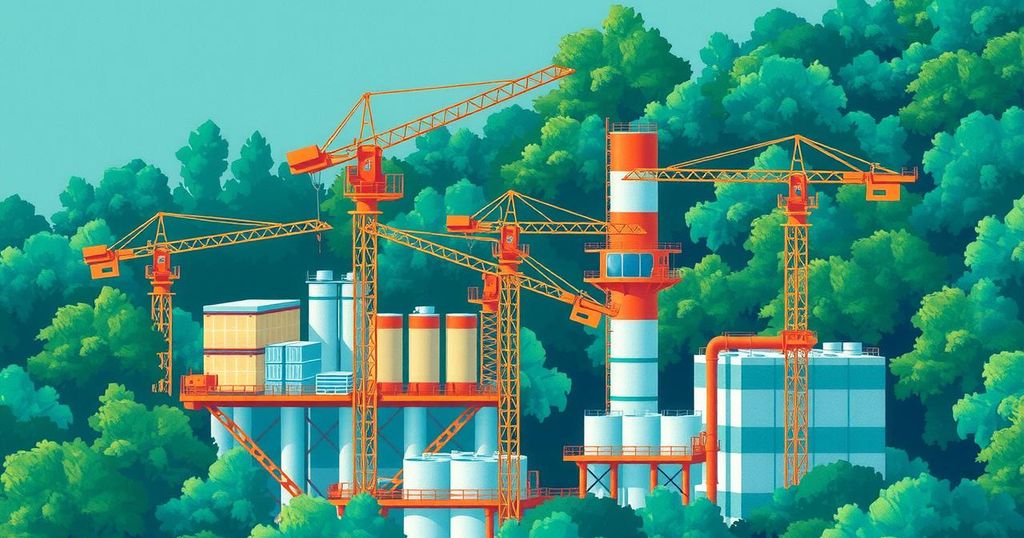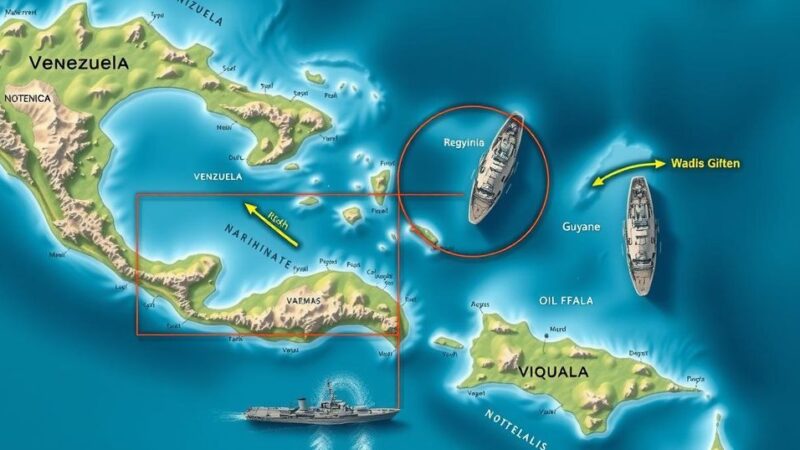Brazilian meat producer JBS announced a $100 million investment to build two factories in Vietnam, producing beef, pork, and poultry for local and Southeast Asian markets. The initiative aligns with Vietnam’s socioeconomic goals, although concerns regarding JBS’s labor and environmental controversies remain. The phased project will create jobs and enhance local production capabilities while JBS aims to strengthen its global supply chain.
On March 31, Brazilian meat producer JBS announced a substantial investment of $100 million to establish two factories in Vietnam, aimed at enhancing its operational footprint in the region and solidifying its global market position. JBS operates over 600 facilities across five continents, including the Americas, Asia, Europe, Africa, and Oceania, with a workforce exceeding 70,000 individuals in the United States.
These new factories in Vietnam will focus on the production of beef, pork, and poultry, utilizing raw materials imported from Brazil primarily to cater to the Vietnamese market and other Southeast Asian nations. While this investment aligns with Vietnam’s socioeconomic development objectives, concerns persist regarding JBS’s history of labor-related controversies and environmental issues.
The partnership between JBS and the Vietnamese government was formalized through a memorandum of understanding facilitated by the Northern Investment Promotion, Information, and Support Centre, alongside the Sao Do Group, which manages the Nam Dinh Vu Industrial and Non-Tariff Zone in Haiphong. This initiative is designed to enhance local production capabilities and elevate Vietnam’s position in the global meat industry.
Renato Costa, the president of JBS subsidiary Friboi, emphasized the company’s dedication to sustainable development in the region, stating, “The new factories in Vietnam will not just expand our production capacity but represent an investment with a purpose: to create value for the local economy, generate skilled jobs, and contribute to food security across Southeast Asia.”
The development will be phased, commencing with the construction of a logistics center in Nam Dinh Vu Industrial Park that will encompass storage as well as pre-processing, cutting, and packaging operations. The second phase, aimed for commencement two years post-operation of the first unit, will establish similar facilities in southern Vietnam, complete with a logistics center and processing plant.
Costa remarked, “The partnership between JBS, the Vietnamese government, and our local partners represents a critical strategic step in our geographic diversification.” This collaboration aims not only to meet local demands but also to bolster JBS’s global presence, thereby creating a sustainable supply chain that enhances its competitive stance internationally. Furthermore, the factories are projected to generate around 500 jobs and will introduce technical training programs, fostering the development of Vietnam’s productive sector.
In conclusion, JBS’s $100 million investment in Vietnam represents a significant initiative to expand its operations in Southeast Asia and strengthen its global market presence. This strategic move not only aligns with Vietnam’s development goals but also raises concerns about the company’s past labor practices and environmental impact. As the project unfolds, JBS aims to contribute to local economies through job creation and technology transfer, while focusing on sustainable practices.
Original Source: www.agdaily.com






